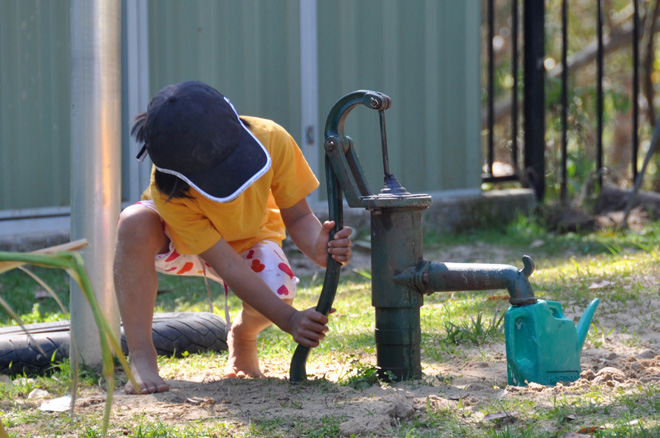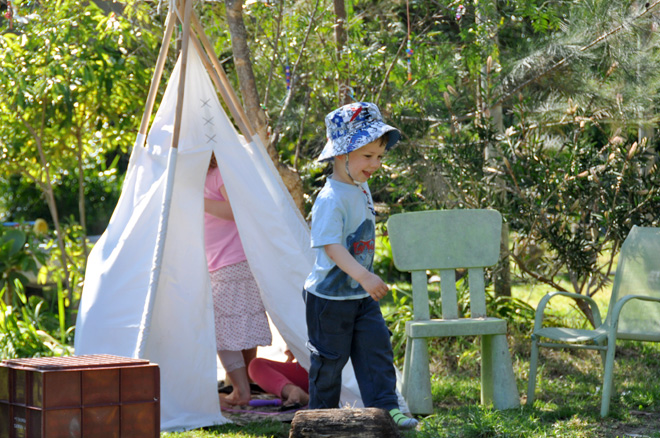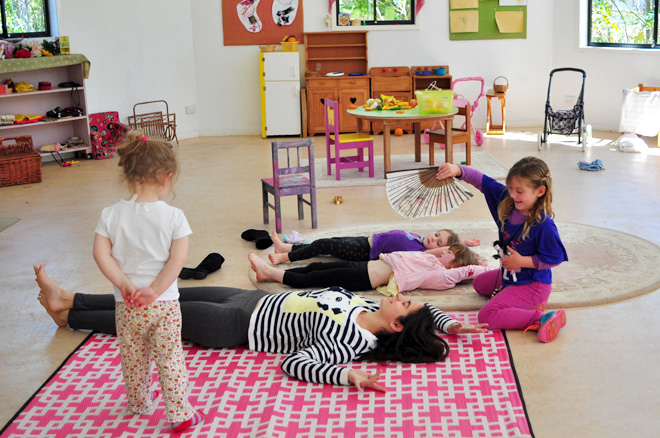Play-based curriculum

At Kinma Preschool play and imagination are integral to our approach. Through our play based curriculum, children develop self-motivation and the ability to make their own choices.
When children initiate pretend play they often become totally absorbed, and can be observed demonstrating skills and behaviours which are more refined and advanced than at other times.
They balance individual freedom with social co-operation, negotiation and responsibility for the welfare of others. They develop the ability to reflect and learn from their own mistakes with courage and confidence in themselves and learners. Play can be the perfect context for developing these life skills.
How we encourage play at Preschool
The environment, the props and the social interactions serve as scaffolds whereby the child can progress to high levels of development and understanding. As early childhood educators we support the development of children's play by:
- allowing children time and space to play
- providing resources and open ended materials that allow children opportunities to manipulate, explore, discover and practise
- respecting and valuing children's sense of ownership, autonomy and control of their own learning and play
- encouraging children to pretend and develop their imaginative play
- valuing play as a process not necessarily with any obvious outcome, but capable of one if the child so desires
- reflecting on our observations in order to plan and further extend children's play and development
"Play starts at birth and early childhood environments that promote play for all children and allow children to feel motivated, esteemed and appreciated are cause for celebration." (Elspeth Harley 1999)

What's so important about play?
What are children gaining through play experiences? Close observation of children participating in dramatic play shows they are using a wide range cognitive skills as they plan and implement their play. These skills include:
|
|

Term Dates 2025
- Term 1: Tues 4 February to Fri 11 April
- Term 2: Wed 30 April to Fri 27 June
- Term 3: Wed 23 July to Fri 26 Sep
- Term 4: Wed 15 Oct to Wed 17 Dec
Term Dates 2026
- Term 1: Mon 2 Feb – Thu 2 April
- Term 2: Wed 22 April – Fri 26 June
- Term 3: Wed 22 July – Fri 25 Sep
- Term 4: Wed 14 oct – Wed 16 Dec
Contact us
127 Coolowie Rd,
Terrey Hills NSW 2084
Find us on Google Maps
Primary: +61 2 9450 0738
Preschool: +61 2 9486 3018
Email Kinma

